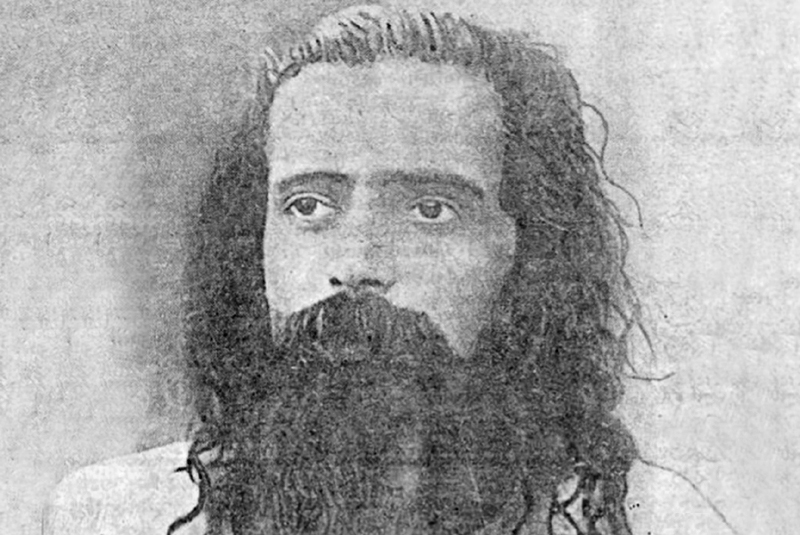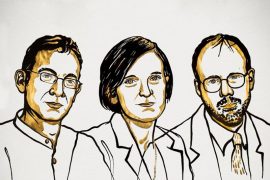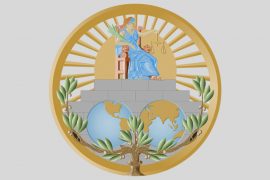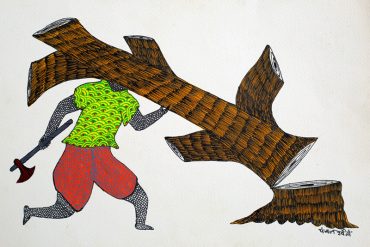The affiliation between the BJP government and the Rashtriya Swayamsevak Sangh (RSS) is an open secret. While in power, the BJP has declared national holidays commemorating the forbears of the RSS ideology. They have celebrated the birthdays of controversial figures such as V D Savarkar, Shyama Prasad Mukherjee and M S Golwalkar.
However, the RSS ideology directly contrasts with the democratic values enshrined in the Constitution of India. “Hindutva,” an extremist ideology propounded by the founders of the RSS, glorifies and emulates Hitler’s Nazi ideology.
Celebrating the birthdays of the RSS leaders who glorified Nazi ideology sends the message that the government believes in the ideology they promoted. Nonetheless, a few years ago, on 19 February, the Government of Indiashared a post on Twitter (now X) that quoted a few lines from Golwalkar’s book, Bunch of Thoughts.
The quotes were vehemently casteist and sexist and sought to promote a homogenous Hindutva identity. In Part II, paragraph X of Bunch Of Thoughts, Golwalkar wrote:
Hindu society, whole and integrated, should forever be the single point of devotion for all of us. No other consideration, whether of caste, sect, language, province or party, should be allowed to come in the way of that single-minded devotion. That is the criterion for real devotion.”
From the quoted lines above, one can easily infer Golwalkar’s call for a “homogenous” society and identity, which prioritises the identity of the majority religious group as the only way of attaining true devotion.
The problem here is twofold. In a democratic civil society, when such words are validated and backed by the ruling party, its supporters appoint themselves as the enforcers of such an ideology and take it upon themselves to police, threaten and traumatise people who do not share the same ideology; it is a direct validation to holders and promoters of bigotry.
Secondly, the BJP’s continuous efforts to convert India into a “Hindu Rashtra,” a direct contradiction to the values enshrined in the Basic structure of the Constitution, is evidence of adherence to the idea of a homogeneous ‘One nation, One identity’ theory.
Even if one were to look away from the point of having a “homogenous identity,” the “true devotion” that Golwalkar advocates seeks discriminatory practices towards India’s minorities and marginalised communities. Meaning that attempts to enforce a homogenous identity directly lend themselves to the creation of an apartheid state in which citizens of the country, particularly those who do not adhere to the majoritarian religious ideology, will be treated as second-class citizens with diminished rights.
For instance, atrocities by the “Upper Caste” Hindus towards the “lower castes” in several parts of India’s villages and towns are perpetuated by the creation of vigilante groups who consider themselves above the law. In practice, they have systematically undermined the Constitutional protections guaranteed to the lower castes, primarily because they derive their power directly from the ruling party, which protects them from law enforcement officers whenever they try to exert their savarna dominance through brute force.
The subsequent paragraph also glorifies an “Aryan” identity by calling it a “superior gene.” His assertion is similar to that of the Nazi ideology, which was responsible for the death of six million Jews?
Golwalkar also poked fun at Ambedkar in his book, condemning his visit to the Bhima Koregaon war memorial in 1927. He wrote:
There is a ‘Victory Pillar’ near Pune, raised by the English in 1818 to commemorate their victory over the Peshwas. An eminent leader of the Harijans once addressed his caste brethren under that Pillar. He declared that the pillar was a symbol of their victory over the Brahmins as it was they who had fought under the British and defeated the Peshwas, the Brahmins. How heart-rending it is to hear an eminent leader thus describing the hated sign of slavery as an emblem of victory, and the despicable action of fighting as slaves of a foreigner against our kith and kin as an achievement of glory! How utterly his eyes must have been blinded by hatred, not able even to discern the simple fact of who were the victors and who the defeated!
It is no mystery that under the rule of the upper caste Peshwa, Dalits were mistreated and forced into a life of destitution. They were so tired of the systematic oppression and discrimination that they sided with the British in the battle of Bhima Koregaon.
The British did not believe in Caste discrimination and saw it as an opportunity to recruit local people to help them establish their hold in the region. The Dalit soldiers were treated with the basic dignity that they deserved. Therefore, to place the burden of nationalism on them is unfair because, in practice, they knew that they were unequal and would always be condemned to a life worse than that of an animal.
They made a tradeoff between the rule of an archaic, oppressive Hindu ruler who refused to treat them as equals because of their caste identity and the rule of a foreigner. In 1927, Dr B R Ambedkar paid tribute to the Dalit soldiers who fought alongside the British and were able to defeat the Upper caste men, who, in the eyes of the Dalits, were worse than a colonial ruler.
Interestingly, in his book, Bunch Of Thoughts, there is a chapter entitled, ‘Our Nation’s Problem.’ Three subcategories are particularly interesting. They are: ‘The Muslims’, ‘The Christians’ and ‘The Communists’ respectively. Under these chapters, Golwalkar has made some intolerant, bigoted comments. He wrote:
Then came the question of Muslims. They had come here as invaders. They were conceiving themselves as conquerors and rulers here for the last twelve hundred years. That complex was still in their mind. History has recorded that their antagonism was not merely political. Had it been so, they could have been won over in a very short time. But it was so deep-rooted that whatever we believed in, the Muslim was wholly hostile to it. If we worship in the temple, he would desecrate it. If we carry on bhajans and car festivals, that would irritate him. If we worship cow, he would like to eat it. If we glorify woman as a symbol of sacred motherhood, he would like to molest her. He was tooth and nail opposed to our way of life in all aspects-religious, cultural, social, etc. He had imbibed that hostility to the very core. His number also was not small. Next to the Hindu’s, his was the largest.”
Within the members of the RSS and the believers of the Hindutva ideology, it is a presumption that Muslims are violent by their very nature, and they are antagonistic to the beliefs and popular practices of the Hindus. Not only does this point reflect an extremely narrow and dogmatic view, but it also presents the prejudice that holders of the RSS ideology have towards the Muslim community.
Destruction of the temples was not on the grounds of religion for most Muslim invaders but on the grounds of plundering the riches and looting for treasures. The extract presents a time when rulers of the past did not have principles of justice and equality and when the rule of law was non-existent. Therefore, the religion of the ruler was a priority because it was a monarchy form of government.
The extract further argues how Muslims are converted Hindus who need to return to the religion of their forefathers. Even recently, the RSS chief Mohan Bhagat said something similar. The argument is that it does not matter whether the forefather of a Muslim man or woman was Hindu or not.
If the individual wants to practise a religion they believe in, nobody has the right to ask him to change his religion. Religious practices are personal and form a part of one’s identity. Article 25 of the Indian Constitution has given every citizen of India the fundamental right to profess, practice and preach religion.
Golwalkar’s book is nothing but a reflection of his bigotry. It ticks all the boxes to be a Neo-Nazi Manifesto. However, now, his bigotry is corroborated and substantiated by the ruling BJP party at the Centre through its policy decisions.
Celebrating such historical figures shows a lack of accountability on the part of the government; clearly, the government do not think the views expressed by these extremist leaders are problematic.
Golwalkar’s Bunch Of Thoughts does not reflect the minority communities in India. Instead, it is a historical document that gives evidence of the bigotry espoused by the leaders of the RSS—men who did not believe in the Constitution of India.
Books like Bunch of Thoughts are widely read by people who are being brainwashed into believing that the Hindus are in danger (“Hindu Khatre Mein Hai”.) But that’s far from the truth. The real question is: will India ever escape from the claws of such partisan politics?
-30-
Copyright©Madras Courier, All Rights Reserved. You may share using our article tools. Please don't cut articles from madrascourier.com and redistribute by email, post to the web, mobile phone or social media.Please send in your feed back and comments to [email protected]











